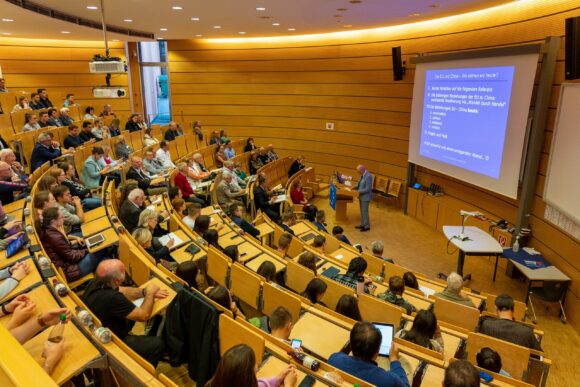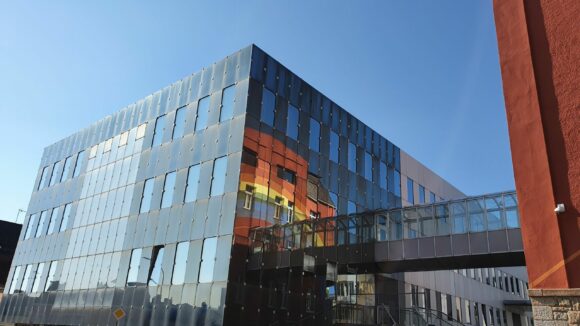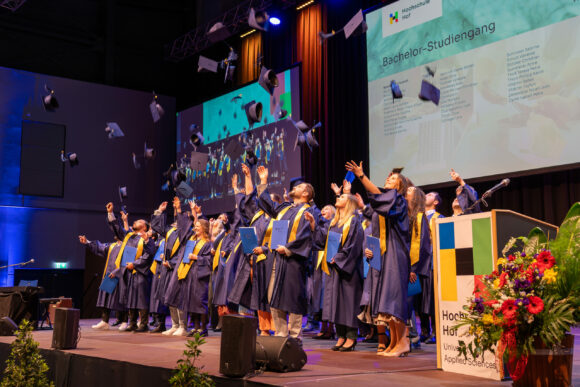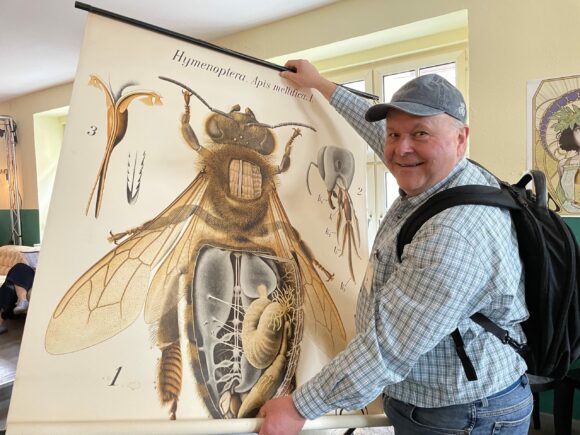The German Engineering Federation (VDMA) and Hof University of Applied Sciences are concluding their joint transfer project. As a result, Hof University of Applied Sciences will offer a restructured and highly flexible bachelor’s degree program in engineering from the winter semester 2022/23. This result has now been recognized by the VDMA at an award ceremony.
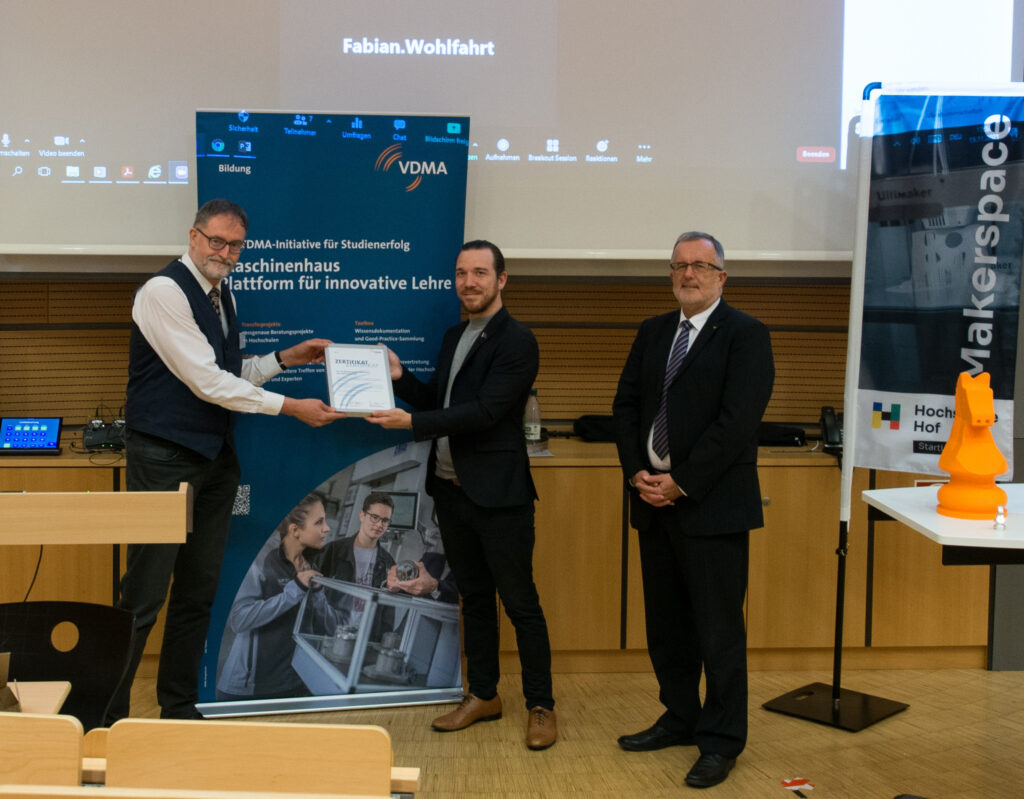
Dropout rates in engineering courses in Germany are still too high – a thoroughly worrying development given the need for qualified specialists in this field in particular. So how can engineering studies be made more attractive for the future and made more flexible so that more young people once again aspire to the relevant training?
Support from industry experts
The Maschinenhaus transfer project held several rounds of talks with course directors, lecturers, students and companies on these key issues, among others. The subsequent workshops were then accompanied and supported by experts from the VDMA and the HIS Institute for Higher Education Development (HIS-HE). Uwe Krüger from HIS-HE explains: “Consistently developing existing study programs is a joint effort by the various teaching staff. In the best case, the result is highly attractive for students and companies. Here at Hof University of Applied Sciences, this collaboration and also the objective have been implemented in an exemplary manner.”
Supra-disciplinary competencies in demand
Project manager and VDMA education officer Michael Patrick Zeiner adds about the project’s objective
Industry 4.0 today requires thinking beyond one’s own field of study. In the course of the project, the companies reported back that, due to the technological developments of recent years, they are looking for mechanical engineering graduates who have already learned during their studies how to incorporate technical content from electrical engineering and computer science. Interdisciplinary skills such as communication skills and agile project management are also becoming more important and should be encouraged during their studies. All of this flows into the project outcome.”
Michael Patrick Zeiner, VDMA Education Officer
Engineering studies are being repositioned
In the future, a new, innovative concept at Hof University of Applied Sciences will combine the contents of all existing engineering study program concepts. Starting in the winter semester of 2022/23, the university will offer a restructured and highly flexible bachelor’s degree program in engineering (B.Eng.). The special feature here is that students are given the option of not having to decide on a major until after an orientation phase. In addition, current developments such as digitalization, sustainability and the mobility of the future are integrated into the modular education. “Interdisciplinary offerings can also be combined with the classic engineering content, which guarantees the best possible qualification for the challenges of the future – this is also a result of the very productive collaboration with the VDMA,” says designated program director Prof. Dr. Marco Linß.
Easier orientation for students
Initially, the concept will affect all engineering degree programs: through a uniform and transparent degree program structure, individual degree programs will be standardized in the entry phase and in their basic modules. “This makes it easier for our students to find their way around in the beginning, strengthens networking among students, and later enables them to specialize in a way that fits them exactly,” explains Prof. Linß
Companies as future employers also benefit from this innovative concept, which combines a sound basis in engineering science with highly innovative transfer knowledge.”
Prof. Dr.-Ing. Marco Linß, Director of Studies
In addition to the two-semester joint orientation phase, the concept consists of the four modules “Basics” (general technical basics), Major 1 (special technical basics), Major 2 (in-depth focus), Minor (freely selectable supplementary block) and a practical phase. With the choice of Major 1, students define their field of study, such as environmental technology, mechanical engineering, electrical engineering, materials engineering or industrial engineering. The decision must be made in the third semester. A possible subsequent master’s degree program serves to specialize graduates in a particular field. Applications for the new program can be submitted from May 2022.
Certification by VDMA
VDMA education officer Michael Patrick Zeiner presented the “Machine House Certificate” at the conclusion of the project and in recognition of the engineering faculty’s commitment. Hof University of Applied Sciences was thus the 60th faculty in Germany to successfully complete the Maschinenhaus transfer project.
Background information:
About the VDMA initiative “Machine House – Platform for Innovative Teaching”
With the Machine House Initiative initiative, the VDMA has been supporting faculties and departments of mechanical engineering, electrical engineering and computer science in the further development of teaching and the achievement of greater academic success since 2013. The Maschinenhaus sees itself as a “platform for innovative teaching” that links stakeholders from universities, politics and companies. The aim is to counteract the high dropout rates in engineering courses and ensure high-quality engineering studies. In currently 62 ongoing or already completed transfer projects throughout Germany, theory is put into practice, and in individual workshops the status quo of teaching is analyzed and new measures are designed. The Maschinenhaus initiative collects good-practice examples of innovative university teaching that have already been successfully implemented in an Toolbox
Further information on the Machine House Initiative and the VDMA’s university commitment




